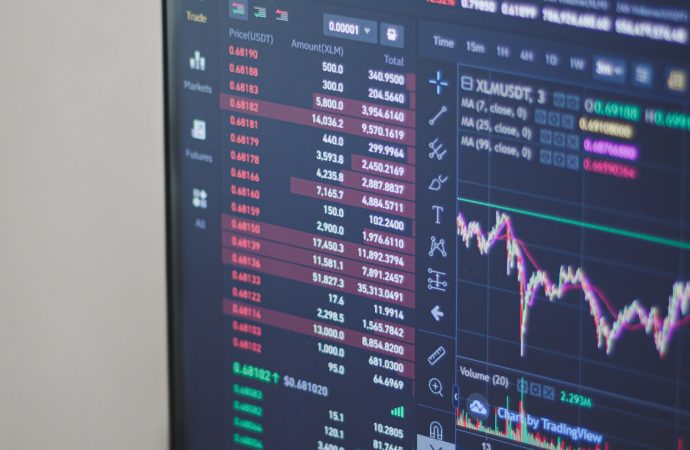The stock market has been on a wild ride over the past year, especially since the start of 2020. On one hand, we have seen record highs and lows, while on the other hand, we have experienced unprecedented levels of volatility. It is no wonder then that investors are beginning to ask whether we are
The stock market has been on a wild ride over the past year, especially since the start of 2020. On one hand, we have seen record highs and lows, while on the other hand, we have experienced unprecedented levels of volatility. It is no wonder then that investors are beginning to ask whether we are heading towards an echo bubble. In this blog post, we will explore what investors should be aware of when it comes to the markets now and if there is any cause for concern as to whether we are headed towards another potential financial crisis. Read on to learn more!
What is an echo bubble?
An echo bubble is a market phenomenon that occurs when prices start to rise rapidly after a period of stagnation or decline. This rapid price appreciation is often driven by investor speculation and can result in a situation where prices become disconnected from underlying fundamentals.
Bubbles typically form when there is an imbalance between supply and demand. In the case of an echo bubble, this can happen when investors become overly optimistic about an asset class or sector that has been underperforming for some time. This optimism can lead to exuberant buying which drives prices up beyond what is justified by underlying fundamentals.
While small echo bubbles may not have a significant impact on the overall markets, larger ones can cause serious problems. When prices become disconnected from fundamentals it creates the conditions for a sharp price correction which can lead to losses for investors and market instability.
Echo bubbles can be difficult to identify as they often form gradually over time. However, there are some key signs that you can look out for which may indicate that a bubble is forming:
1) Asset prices start to rise rapidly after a prolonged period of stagnation or decline;
2) The price appreciation is driven by investor speculation rather than underlying fundamentals;
3) Prices become disconnected from underlying fundamentals;
4) There is an imbalance between supply and demand; and
5) Investors become overly optimistic about the prospects for the asset class or sector in question
Are we heading towards an echo bubble?
The U.S. stock market is on a tear, with the Dow Jones Industrial Average and S&P 500 both up more than 25% this year. But some market observers are concerned that the gains are being driven by a “echo bubble” created by the Federal Reserve’s easy money policies.
In an echo bubble, investors pour money into assets that have already gone up in value, driving prices even higher. This can create a feedback loop where asset prices keep rising as more and more investors buy in, until eventually the bubble pops and prices come crashing down.
There are signs that an echo bubble may be forming in the stock market. For one, valuations are stretched by historical standards. The Shiller PE ratio, which measures stock prices relative to corporate earnings over the past 10 years, is currently at 27. That’s well above the long-term average of 16 and higher than at any point during the dot-com bubble of the late 1990s.
Another sign of an echo bubble is investor behavior. Individual investors have been pouring money into stocks this year, even as professional money managers have been pulling back. This suggests that Main Street is chasing after returns that have already been generated by Wall Street, which could lead to dangerous levels of speculation.
The Fed’s easy money policies are certainly playing a role in creating conditions for an echo bubble. By keeping interest rates low and pumping billions of dollars into the financial system through quantitative easing, the Fed has
What you need to know about the markets now
It’s no secret that the stock market has been on a tear in recent years. But some experts are now warning that we may be heading for an “echo bubble” – a situation where prices are being driven up not by fundamentals, but by speculation and easy money.
If you’re thinking of investing in the markets, or already have money invested, it’s important to understand the risks. Here’s what you need to know about the markets now:
- Stock prices are at record highs. The S&P 500 index is up nearly 250% from its lows in 2009, and many individual stocks have seen even bigger gains. While there are always risks in the markets, valuations are definitely stretched right now.
- Interest rates are still near historic lows. This has helped drive up asset prices (like stocks and real estate) by making it cheaper to borrow money. When rates eventually do rise, it could put pressure on asset prices.
- Corporate profits are at record levels. This is one of the main reasons why stock prices have been rising – companies are doing well and investors are bidding up their shares. However, profits can’t keep going up forever – eventually they will start to level off or even decline, which could send stock prices down as well.
- Economic growth is still relatively weak. While corporate profits have been strong, overall economic growth has been relatively muted since the financial crisis. If growth doesn’t pick up soon
Conclusion
In conclusion, it’s important to remember that no one knows for sure whether or not we are heading into an echo bubble. There are numerous factors that can affect the markets, both positive and negative, so it is important to stay informed about what is going on in the markets. The best approach may be to diversify your portfolio and invest in a variety of assets with different risk levels. Ultimately, keeping track of economic indicators and staying informed is the key to making smart investments during uncertain times like these.





















Leave a Comment
Your email address will not be published. Required fields are marked with *